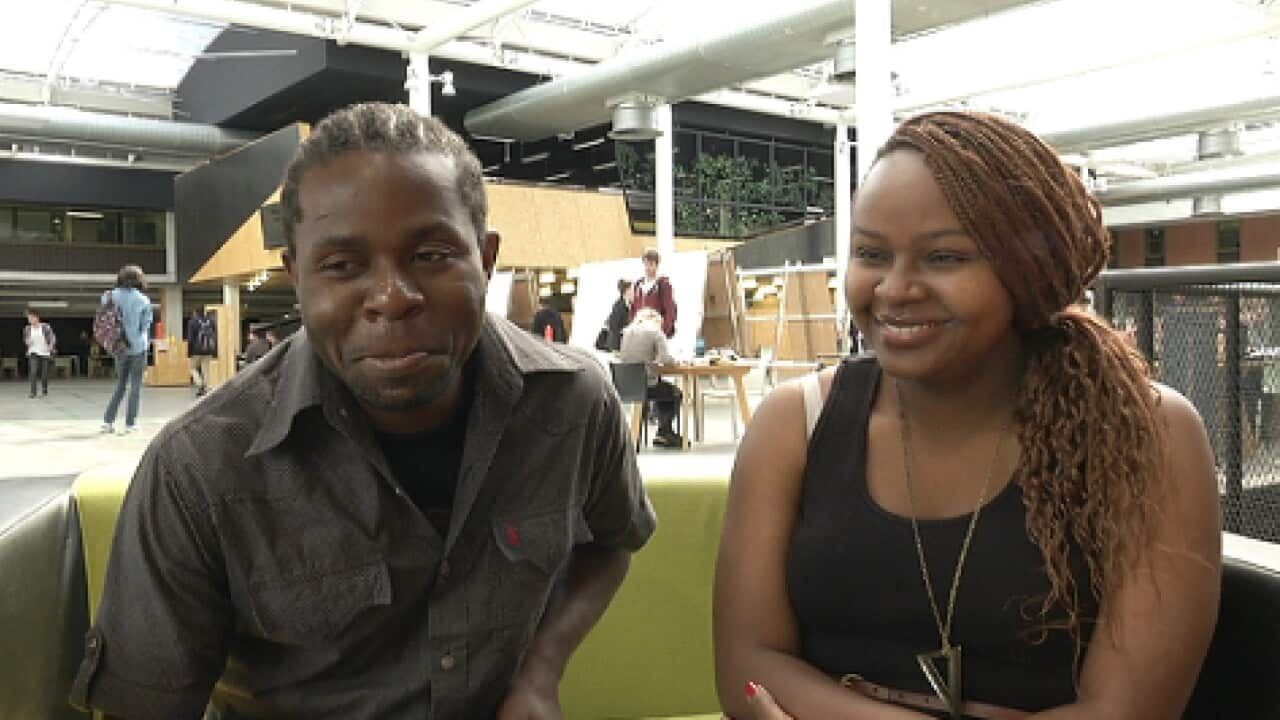It's potentially a life-or-death question.
How much money would convince you to work on the frontline fighting Ebola?
SBS has learned that East African doctors are being offered more than five hundred dollars per hour to work with Ebola patients in West Africa.
An extraordinary recruitment drive is underway in Malawi.
Owen Chikhwaza is a Malawian doctor, currently studying in Adelaide.
He says he was invited to work with Ebola patients in West Africa through a private facebook network for Malawian doctors.
"The WHO (World Health Organisation) are offering $325 dollars an hour, and the Centre for Disease Control Malawi office they are offering $200. In total that is $525 per hour"
The Malawi College of Medicine's Kruger Kaswaswa has confirmed that candidates are being sought, and says there's been a strong response.
However he says selection criteria will be tough, plus logistical details such as transport, accommodation and medical support are yet to be finalised.
That hasn't dissuaded Dr Chikhwaza from putting his name forward.
"The biggest motivation will be... well, obviously you wouldn't buy your life with $500 an hour - my life is worth more than that. It's like a soldier going to war - you're fighting for the bigger picture."
Dr Chikhwaza and fellow student Mercy Mwangangi from Kenya have been in Australia since February on AusAid scholarships.
Mercy Mwangangi says the offer to temporarily return to Africa has some appeal.
"You do get an experience working in epidemiology and both Owen and I are doing our masters in health economics / public health and having that in our resume, that we've actually worked in and controlled an epidemic such as ebola would be very good in our resumes, and this is a line of work that we intend to carry on with ion the future so it does look good on the resume."
But Dr Mwangangi says there are many aspects of the deal which leave her hesitant, such as what medical evacuation protocols would apply should she contract the infection, and what support she'd receive in the field.
"I think beyond the $500 that they're offering, I would need a bit more of an incentive to go - maybe some form of insurance, maybe some more information on how they'll be trying to prevent infection, do I get some training before I go? Is it training in Malawi before I get to Liberia? Or is it training in Liberia?"
The Ebola epidemic has infected more than 8,000 people, and if it continues unchecked it's projected to top a million within months.
The demand not just for equipment, but skills, is enormous.
Mercy Mwangangi says, for doctors devoted to the wellbeing of others, it presents a complex moral challenge.
"It's a delicate situation - you do have to consider your family. If you had children you'd have to think of that, and the transmission rates, the risk of getting ebola as a medical officer there are high."
Dr Mwangangi says her five years of remote medical experience in Kenya would be an asset in Liberia.
"It's pretty much the same situation, you're dealing with a rural community who more or less have a similar culture to Kenya and therefore I think we would have probably a better understanding of trying to help people and deal with cultural barriers and issues."
Ultimately, Dr Mercy Mwangangi has decided not to go.
"My mother was not excited about it - she categorically told me not to go, because I lost my brother in December and she feels that going there would be a suicide mission so she actually offered to pay the $500 an hour"
Dr Owen Chikhwaza has chosen to spare his family the knowledge, and subsequent concern.
"It's tricky, we just agree to disagree because like me, I'm the only kid in the family and definitely it's very tricky and actually no one in my family, I haven't even told them, I wouldn't even start to tell them because I know their answer, I know their reactions. The feeling by everybody else is you go there, you're going to die.
But it's a risk he's philosophical about.
"At the end of the day if it was meant to happen it'll happen but even if it happens I still think if something happen while you're doing something like saving people's lives I would forgive myself for that. Despite what everyone else thinks about it, despite all the risks I'll still give it a go."

